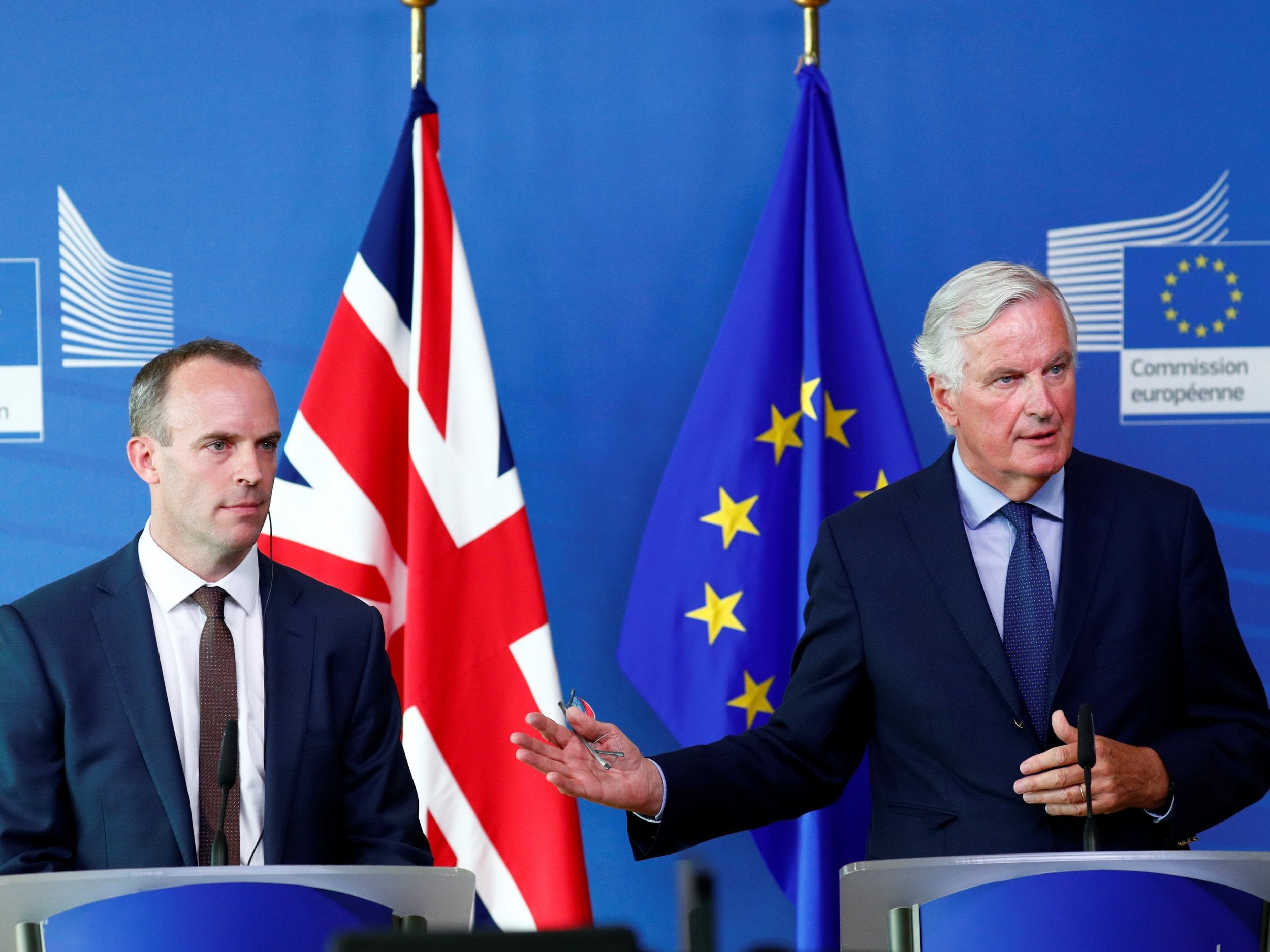Your support helps us to tell the story
From reproductive rights to climate change to Big Tech, The Independent is on the ground when the story is developing. Whether it's investigating the financials of Elon Musk's pro-Trump PAC or producing our latest documentary, 'The A Word', which shines a light on the American women fighting for reproductive rights, we know how important it is to parse out the facts from the messaging.
At such a critical moment in US history, we need reporters on the ground. Your donation allows us to keep sending journalists to speak to both sides of the story.
The Independent is trusted by Americans across the entire political spectrum. And unlike many other quality news outlets, we choose not to lock Americans out of our reporting and analysis with paywalls. We believe quality journalism should be available to everyone, paid for by those who can afford it.
Your support makes all the difference.A pledge by Britain and the European Union to engage in “continuous” Brexit talks has yet to actually materialise into meetings, as the deadline to reach a deal looms.
The bloc’s negotiator Michel Barnier and his opposite number Dominic Raab last week said they would begin to negotiate “continuously” as talks entered the “final stage” with some significant issues yet to be overcome.
But despite a week passing since the pledge was made, there have been no official meetings scheduled between the teams since last Wednesday.
Asked whether any further meetings were in the pipeline a spokesperson for the European Commission told reporters in Brussels at lunchtime on Tuesday: “At the moment we have not got a meeting we can confirm as yet.”
An official from the Department for Exiting the European Union suggested there would be meetings on Wednesday and Thursday of this week – a week since the last meeting and far from a continuous arrangement.
Despite the pledge to intensify discussions, it remains to be seen whether more talks would actually serve any useful purpose – possibly explaining the lack of urgency.
Officials are struggling to make any progress because of deadlock at the political level, with both the British Government and European member states outright rejecting each others’ proposals for the Northern Ireland border – the crucial sticking point in discussions.
At the moment we have not got a meeting we can confirm as yet.
The Northern Ireland border issue must be solved before a withdrawal agreement can be signed, and the Irish government has said a withdrawal agreement without a border backstop would “be of no use” – effectively threatening a no-deal. The European Parliament, which also has its own veto, has made a similar threat.
Both Britain and the EU say they want to prevent a hard border in Ireland; the EU has proposed Northern Ireland staying in the EU customs territory to accomplish this. The UK has rejected this proposal on the basis that it would be a breach of British sovereignty, but the EU has argued that it would not be, and suggested the UK “de-dramatise” its response to the plan – effectively telling Britain to chill out.
The EU says the UK’s own proposal would not prevent a hard border, and UK officials have suggested they have no plans to offer any further solutions.
Apart from the Ireland issue, UK and EU also want to come to a separate political declaration on what their future trade relationship will look like. Though the main talks for finalising this relationship would be held after the UK leaves, the British government says it needs detail on the future relationship to pass the plan through Parliament.
Theresa May’s Chequers plan, the UK’s blueprint for the future relationship, has effectively been rejected by the European Commission. The EU raised fundamental issues with the British unique proposals for customs, as well as unhindered special UK access to the single market for goods.
Michel Barnier has repeatedly said that in the EU’s view the only way to maintain frictionless trade after Brexit would be for Britain to join a customs union with the EU and also follow the rules of the single market, including freedom of movement and the jurisdiction of the European Court of Justice. Theresa May has ruled out all these policies and at home appears to have little room for manoeuvre, with eurosceptics in her party already threatening to reject Chequers.
Both parties say they want a deal by October to give time for it to be ratified; the UK is set to leave the EU on the 29 March 2019 under the terms of Article 50 – with or without a deal.

Join our commenting forum
Join thought-provoking conversations, follow other Independent readers and see their replies
Comments